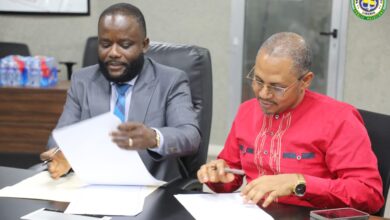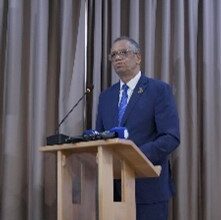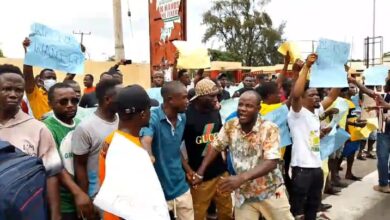Jury to rule in Ecobank’s US$700K libel case today

By Lincoln G. Peters
Monrovia, Liberia, January 31, 2025 – Jury of the Civil Law Court annex ‘B’ will today, Friday, January 31, deliver a verdict in the ongoing US$700,000 libel lawsuit against Ecobank-Liberia, Alex Williams, former deputy director general for Statistics and Data Processing at Liberia Institute of Statistics and Geo-Information Services (LISGIS) and Yussif Kromah, an employee of the bank
Unfortunately, Ecobank is the lone defendant being tried in the case.
The case against the bank will be concluded faster than many observers – both in court and people following had expected.
Before the verdict, the jury will have to listen to closing arguments from lawyers representing the bank and those of Wilmot Smith, former deputy director general for information coordination at LISGIS, seeking US$700,000 in damages.
Throughout the trial, the bank’s argument has been based on its investigative findings that established that its former employee, Yussif S. Kromah, Reconciliation Officer assigned to the Card Operation Department, leaked information of LISGIS’s account details to Mr. Alex Williams, who is unauthorized and a non-signatory to the account.
Smith alleges that Williams manipulated the account details for his personal and selfish aims, except for the bank-client privilege.
They argue, for instance, that Williams shared the account statement with Spoon TV’s social media platform, one of the widely listened-to talk show programs in and outside of the country.
Williams and Spoon TV used the leaked information to incriminate Smith for illegally withdrawing US$ 1.7 million from LISGIS’s account with the bank intended to pay enumerators for the 2023 National Housing and Population Census for his benefits.
However, the bank had argued that it dismissed Kromah from its employment after the investigation, so it can’t be held liable for Kromah’s actions.
Under the doctrine of Respondent’s superior, an employee is vicariously liable for their employee’s tortuous acts within the scope of their employment. This principle is well established under Liberian law.
Moreover, the Supreme Court has repeatedly held that an employer is liable for the acts of its employee when such acts are committed in the course of employment and within the scope of the employee’s duties.
These are the arguments that the jury decision is expected to focus on. Editing by Jonathan Browne



















